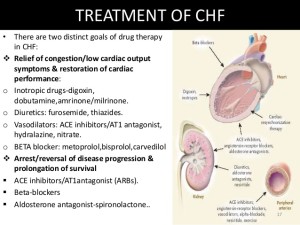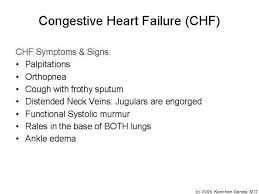Part 2 Congestive Heart Failure:Signs & Symptoms and diagnosing.
Heart failure can be ongoing (chronic), or your condition may start suddenly (acute).
Heart failure signs and symptoms may include:
- Shortness of breath (dyspnea) when you exert yourself or when you lie down
- Fatigue and weakness
- Swelling (edema) in your legs, ankles and feet
- Rapid or irregular heartbeat
- Reduced ability to exercise
- Persistent cough or wheezing with white or pink blood-tinged phlegm
- Increased need to urinate at night
- Swelling of your abdomen (ascites)
- Sudden weight gain from fluid retention
- Lack of appetite and nausea
- Difficulty concentrating or decreased alertness
- Sudden, severe shortness of breath and coughing up pink, foamy mucus
- Chest pain if your heart failure is caused by a heart attack
- To diagnose heart failure, your doctor will first ask you questions about your medical symptoms and history. Your doctor will want to know:
- if you have any other health conditions such as diabetes, kidney disease, angina, high blood pressure, or other heart problems.
- if you smoke
- if you drink alcohol and how much you drink
- what medications you are taking
- Your doctor will also perform a complete physical exam. Your doctor will look for signs of heart failure as well as any other illnesses that may have caused your heart to weaken.

